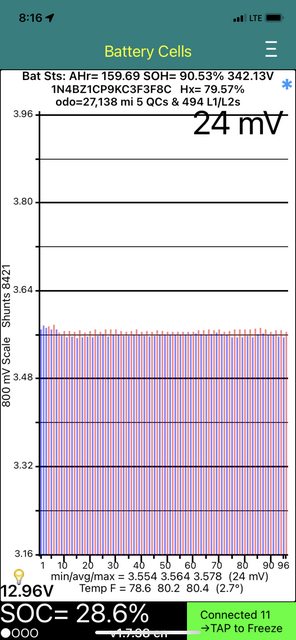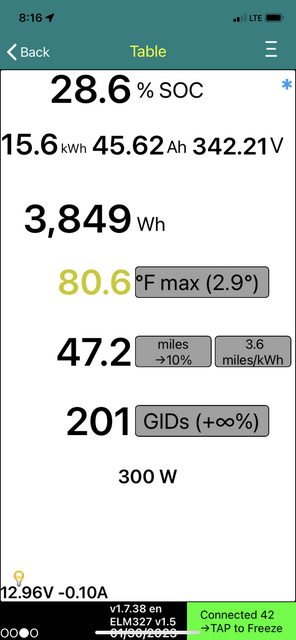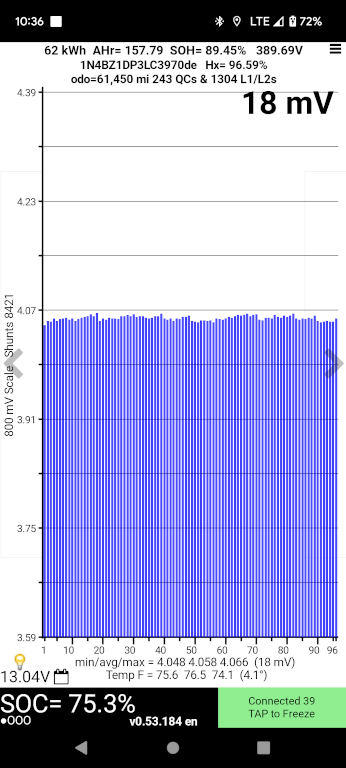I finally broke the 90% barrier for SOH on my 2020 SL. Not for bragging of course, but to continue with the public data collection. So far, compared to my previous 2013 SV, at nearly +61,450 miles, my SOH had dropped to 73.15%

Range degradation was quite noticeable by then on my 2013 SV. On my 2020 SL, range degradation is technically there, but I'm still able to charge up to over +56 kW at full so my driveable range via the Dash (not LeafSpy and using the hidden reserve) has remained unchanged and I still easily get over +215 miles of range. My actual 100% to 0% battery shutdown range still remains at around +250 miles for in-town driving and roughly +220 miles of "conservative" highway/Interstate driving. So far, despite me doing absoutely nothing to baby my battery, it seems to be holding up very well compared to my 2013 SV. So bigger is better I believe when it comes to long term battery degradtion for the Leaf. It really seems like there is a path to battery technology that can function without an active cooling system should the chemistry and technology be financially feasible of course.


 Click For Full-Size Image.
Click For Full-Size Image.
 Click For Full-Size Image.
Click For Full-Size Image.



